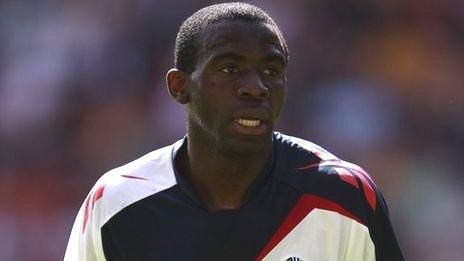Fabrice Muamba: Snapchat CPR lessons will save lives
- Published
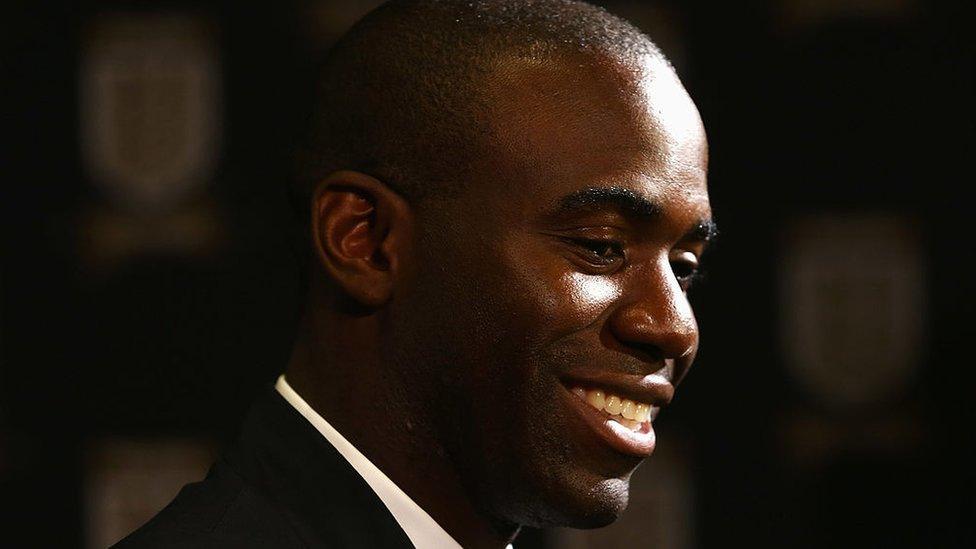
A new Snapchat feature aimed at teaching cardiopulmonary resuscitation (CPR) will save lives, according to former footballer Fabrice Muamba.
Snapchat users can find the feature within the Lenses section of their app.
The camera filter, created with the Red Cross charity, will guide users through performing chest compressions and quiz them on what they have learned.
Muamba, whose heart stopped on the pitch in 2012, said it was "very important" people learned basic CPR.
"Speaking from my own personal experience, I was fortunate enough that it happened to me where I had the best medical care that I could wish for," he told BBC News.
"Young people nowadays, they are out most of the time with a friend. If [they] find themselves in this situation and they don't know how to do CPR, then they're in serious trouble.
"But if you know how to do CPR through this lens on Snapchat, then you give your friend a better chance of surviving sudden cardiac arrest."
'Effectively dead'
According to the International Liaison Committee on Resuscitation, fewer than 20% of people perform first aid despite 70% of cardiac arrests happening in front of others.
Muamba, then 23, had a cardiac arrest playing for Bolton Wanderers in an FA Cup match against Tottenham Hotspur.
Healthcare professionals spent six minutes trying to resuscitate him on the pitch. He was "effectively dead" for 78 minutes.
"If this happened to me in my house, I don't think we'd have this conversation today," he said.
"That's why I'm working with Snapchat to show people the importance of CPR and hopefully people learn to do it and help people to survive sudden cardiac arrest."
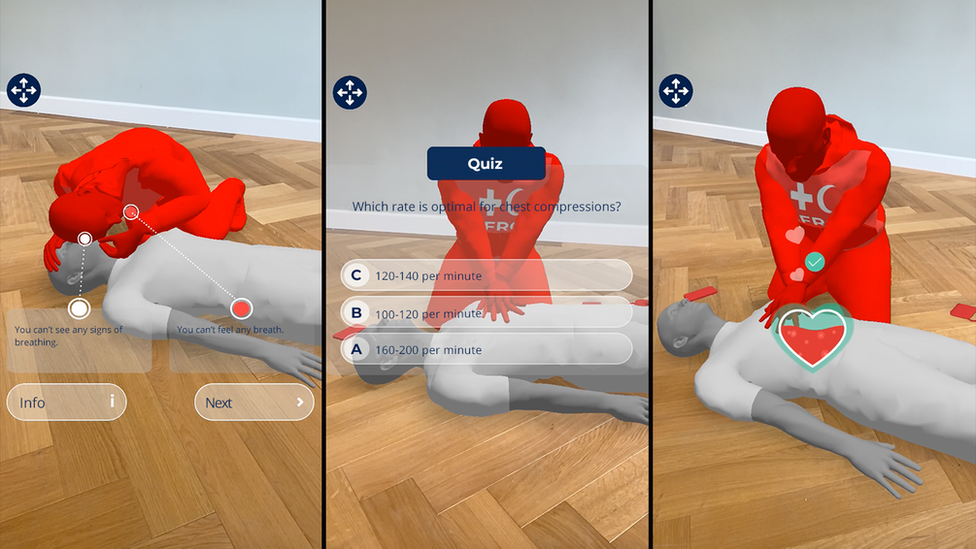
What users will see when they use the filter
The Apple and Google app stores already have many apps that teach CPR, including from St John Ambulance and the Resuscitation Council UK.
But Snapchat says it has more than 347 million daily active users, external.
"Everybody has social media," Muamba said. "Why not encourage people who have Snapchat to look into learning how to do the basic skill of CPR?
"We can capture your attention through that and you learn something from that.
"It is self-explanatory and easy to use and it's all about being proactive. It's about being ready to go and able to do it, rather than being scared of not doing anything.
"You learn how to do it and then once you find yourself in that predicament, you're able to remember what you learned - it's about taking action and actually being able to do it in the first place.
"So that's why it's very important we encourage young people, we encourage anyone who has Snapchat on their phone, to learn how to do CPR through the lens - because it will give people a better chance of surviving sudden cardiac arrest."
How to perform CPR
If someone is unconscious and not breathing normally, you should call 999 and attempt chest compressions, according to the NHS, external:
Kneel down and place the heel of your hand on the breastbone at the centre of the person's chest
Place the palm of your other hand on top and interlock your fingers
Position yourself so your shoulders are directly above your hands
Using your body weight, press straight down by 5-6cm (2-2.5 inches) on their chest
Keeping your hands on their chest, release the compression and allow their chest to return to its original position
Repeat these compressions 100-120 times a minute until an ambulance arrives
Related topics
- Published10 March 2022
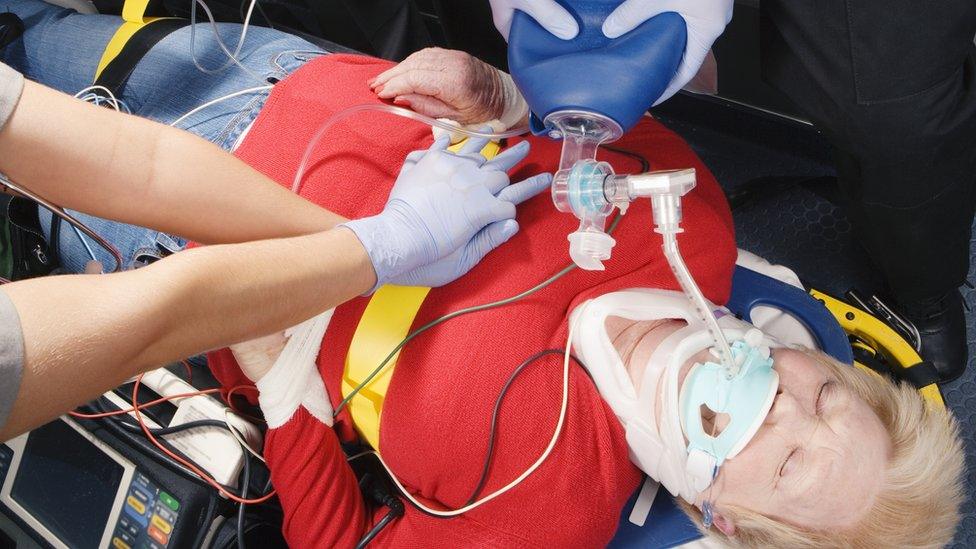
- Published9 July 2015
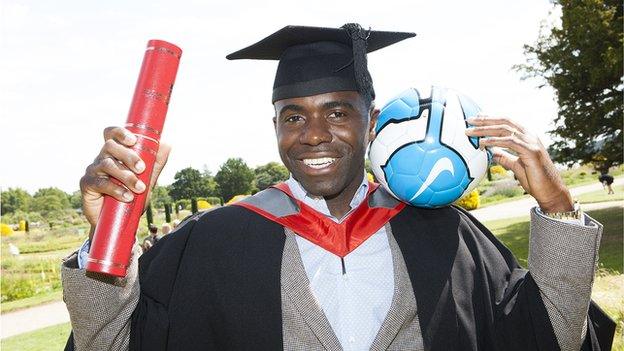
- Attribution
- Published17 March 2012
